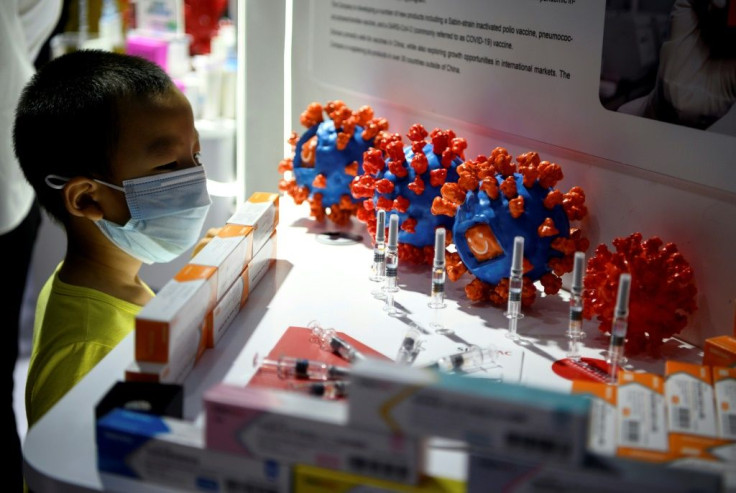WTO Deadlock On Plan To Free Covid Vaccines From IP Protection
The World Trade Organization failed to agree Thursday on a proposal to exempt Covid-19 vaccines from intellectual property rights -- an idea staunchly opposed by pharmaceutical giants.
The plan aims to facilitate greater knowledge-sharing and the rapid scale-up of production sites for urgent Covid-19 medical goods, including vaccines.
The notion was brought forward by India and South Africa, countries which want to boost the global production of vaccine doses to combat the coronavirus pandemic.
It is supported by around 100 countries, according to the medical charity Doctors Without Borders (MSF), and by the World Health Organization (WHO).
However, "WTO members failed to reach a consensus on the proposal," a Geneva trade official said.
"Members agreed to keep this item in the agenda of future... meetings to allow for further consideration of the waiver request.
"An oral status report will be presented at the next General Council meeting on December 16-17 indicating the need for further discussions on this issue."
The General Council is the organisation's supreme decision-making body. WTO member states take decisions by consensus, meaning an agreement was unlikely, given the opposition in the room.
The trade official said members offered no indication of change in their well-known positions or of a likely consensus in the future.
The plan seeks a waiver from certain rules in the WTO's Agreement on Trade-Related Aspects of Intellectual Property Rights (TRIPS).
It would grant an IP exemption until a majority of the world's population has been immunised against Covid-19.
The plan would "scale up production in many, many developing countries which have the capacity", Leena Menghaney, MSF's South Asia medicines access campaign chief, told reporters.
Besides India and South Africa, she said there was production capacity in Bangladesh, Brazil, Thailand and several Latin American countries.

WHO chief Tedros Adhanom Ghebreyesus said a green light from their Geneva neighbours at the WTO would make the vaccines, tests and treatments used to fight Covid-19 "available to all who need them at an affordable cost".
Though the plan has the backing of many developing countries, it is firmly opposed by states that host pharmaceutical giants.
IP rights encourage a "strong innovation business model" that has enabled development of Covid-19 tools, said Thomas Cueni, head of the International Federation of Pharmaceutical Manufacturers and Associations.
"We would have had no chance to move as quickly developing treatments or vaccines without the IP system," he told an event this week.
Cueni stressed that those benefitting from IP waivers and transfers of such brand new technology would need years to build their production capacity from scratch.
"Even if the patents were waived, not a single more vaccine would reach the people during the pandemic," he insisted.
In the TRIPS meeting, South Africa urged that patents and copyright should not create barriers to timely access to affordable medical products, according to the Geneva trade official.
The European Union said the IP system was part of the solution to the challenge of universal and equitable access to vaccines and Covid-19 treatments, he added.
Meanwhile the United States said that manufacturing capacity and supply chain problems were the most pressing concerns regarding vaccines.
The TRIPS chair proposed meeting in January or February to discuss the issue further.
During informal discussions at the WTO in recent weeks, Japan, the United States and the EU voiced their opposition, highlighting the vast financial commitments made by pharmaceutical groups.
The plan's opponents also say the existing IP rules are already flexible enough, having provision for granting compulsory licences specifically intended for emergencies such as the coronavirus pandemic.
However, some countries think the procedure to get such licenses is too complicated, and the conditions too numerous.
© Copyright AFP 2024. All rights reserved.





















